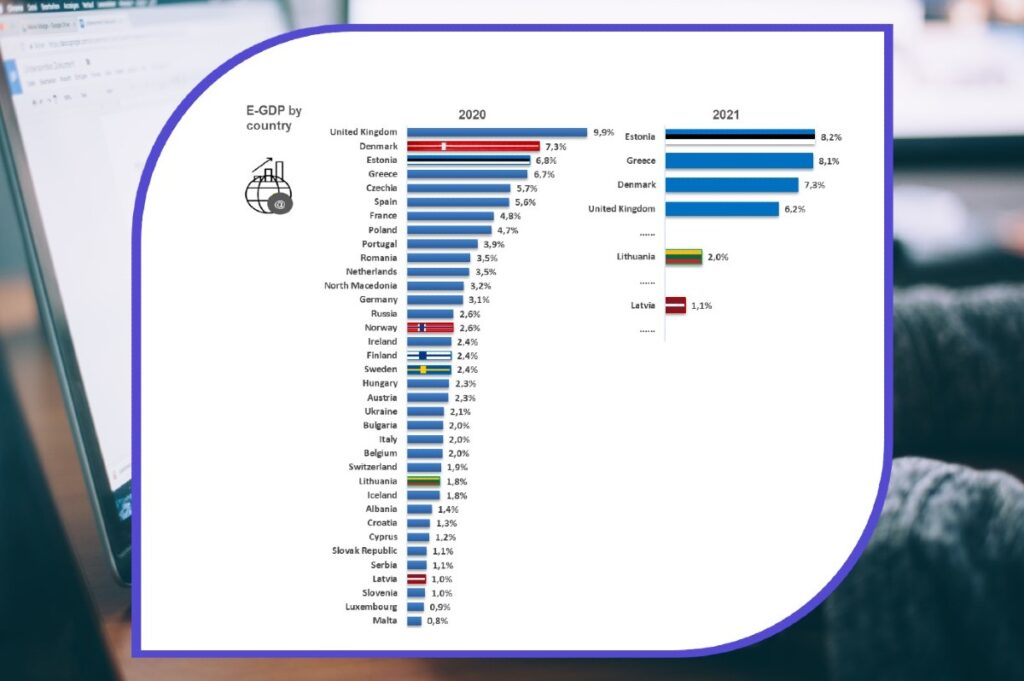
23.12.2022
The importance of e-commerce is expected to increase in Europe
European e-commerce experienced a double-digit growth in B2C turnover in 2021 reveals a report based on 37 countries in Europe. Although Covid-19 pandemic measures were lifted and the United Kingdom left the EU single market, e-commerce turnover grew at a rate of 16% in 2021.
Therefore, buying services and goods online is increasing its importance in the commerce ecosystem. e-GDP reflects the share of GDP generated by e-ecosystem and is one of the figures illustrating the development of e-commerce. The higher the e-GDP level, the more important role online trade plays in a certain country in comparison to other sectors.
The level of e-GDP varies significantly between European countries. In the UK it constituted almost one tenth of the GDP in 2020, while in such countries as Malta, Moldova or Luxembourg e-GDP doesn’t exceed 1%.
In 2020, Estonia was one of top three countries in the EU with e-GDP rate of 6.8%. As Estonia’s digital economy was the fastest growing in the EU last year, Estonia took the leading position in terms of e-GDP rate, reaching 8.2% in 2021. Contrary to Estonia, e-commerce in Latvia and Lithuania remains modest and the segment contributes respectively only 1% and 2% to the GDP.

Interestingly enough, when analyzing the data by European regions, we can see that Northern Europe (Baltic countries are included among the Nordic countries) has fallen behind in the share of B2C e-commerce turnover when compared to other regions in Europe. This share of turnover is reflected in the e-GDP that is equivalent to about 4% of total GDP of the region. While Northern Europe’s e-GDP level is driven up by Estonia and Denmark, traditional Nordic countries like Sweden, Finland and Norway only have e-GDP rate of about 2.5%. It is interesting, because all these countries rank high in terms of internet users and online shoppers in Europe.
Figures shown above prove that shopping online plays a significant role in Estonia’s economy. This fast growth of digital economy needs to be supported by the development of innovative concepts of buildings i.e., stock-offices, that are tailor-made for different types and sizes of e-commerce enterprises.
During the first nine months of 2022, 41,300 m2 of stock-office spaces were built and another 50,700 m2 is still under construction in Estonia. Since e-GDP share in Latvia and Lithuania is quite low at the moment, the stock-office concept is not so popular in these countries yet.
It is expected that the importance of e-commerce will continue to grow considerably in the coming years all over Europe. It is only a matter of time that the stock-office concept will be in great demand in other European countries too. More information about the stock-office concept can be found on our webpage.